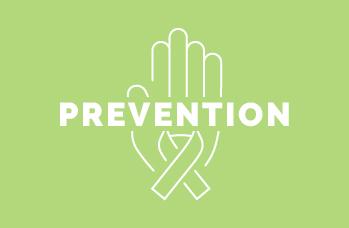Encouraging the FDA to Regulate E-Cigs, Cigars and Other Tobacco Products
07 July, 2014
This week the Nevada Cancer Coalition submitted a public comment to the Food and Drug Administration (FDA) in response to their proposed new rule, referred to as the deeming rule, that would extend the FDA's authority to regulate all other "tobacco products" not currently regulated including e-cigarettes, cigars, hookah, pipe tobacco, and other similar products. The e-cigarette and cigar industries, including manufacturers and retailers, have been rallying customers and supporters to flood the FDA with comments urging exemptions and weaker regulations. Many of these comments are form letters written by tobacco industry advocates and automated for easy posting. However, the FDA has specifically requested specific and thoughtful comment that addresses the content of the proposed rule with quantitative and qualitative data, and sound science and reasoning. Each public comment is capped at 5,000 characters, limiting, to some extent, the amount of information we could submit. However we were able to outline six key points that we feel are priorities for public health and youth tobacco prevention. Below is the text of the comment submitted on behalf of Nevada Cancer Coalition. If you feel strongly about the FDA's regulation of tobacco products not currently included in their rules we encourage you to submit your comment, no later than Aug. 8, 2014, using their online form.
The Nevada Cancer Coalition strongly agrees with Option 1 of the FDA Proposed Rule published in the Federal Register, Docket No. FDA-2014-N-0189, extending the FDA’s authority to deem products meeting the statutory definition of “tobacco product,” except accessories, to be subject to the Federal Food, Drug, and Cosmetic Act as amended by the Family Smoking Prevention and Tobacco Control Act.
Annually tobacco use kills more than 3,400 Nevadans and leaves more than 68,000 living with smoking-attributable illness. The latest data on smoking and tobacco use in Nevada reveals that more than 18% of adults are smokers and 14.8% of youth currently use cigarettes, cigars or smokeless tobacco. Further, 9.2% of Nevada youth have used cigars, cigarillos and little cigars, items not currently regulated in the same way as cigarettes or smokeless tobacco. Data on e-cigarette use from a recent report by the CDC indicates that youth use and experimentation with these currently unregulated products has doubled from 4.7% in 2010 to 10% in 2011. Sales figures for e-cigarettes and similar products have grown exponentially to more than $2 billion in 2013 indicating that use of this type of tobacco product will continue to grow without appropriate regulation. Meanwhile the financial burden of tobacco use also grows. It’s estimated that tobacco use costs Nevada $3.57 billion annually through direct medical expenditures and productivity losses.
Key Points:
- FDA should regulate all cigars. “Premium cigars” or any other subset of cigar products that meet the definition of a “tobacco product” should not be exempt from regulation. Further, “little cigars” should be subject to the same regulation as cigarettes including the prohibition of characterizing flavors. Evidence shows that both categories of products are smoked by kids as well as adults. According to the FDA, “a large cigar may contain as much tobacco as a whole pack of cigarettes.” Exempting any category of tobacco product creates a dangerous loophole that can be exploited by the tobacco industry.
- FDA must extend sales and marketing prohibitions. Keeping tobacco products out of the hands of minors should be a priority. We support the FDA’s proposed age restrictions on the sale of tobacco products including e-cigarettes as well as the ban on free samples. Internet sales of tobacco products including e-cigarettes and refill liquids should require the same age verification procedures that currently apply to internet sales of cigarettes. We also believe there is ample evidence to support the FDA’s extension of the entire 2010 rule on marketing to all tobacco products to include a ban on self-service displays, brand name sponsorship of events and the sale or distribution of merchandise with brand names or logos.
- FDA should ban flavors in cigars and e-cigarettes. With flavors like cotton candy, gummy bear and bubble gum there is little doubt that characterizing flavors in e-cigarettes and “little cigars” target kids. The flavors already banned in cigarettes should also be banned in cigars and e-cigarettes, as well as other “tobacco products.”
- FDA should require childproof packaging and containers. Calls to poison control centers for liquid nicotine exposure have risen greatly in recent years. Exposure to liquid nicotine, even in small amounts when ingested or absorbed through the skin can lead to vomiting and seizures, potentially worse. FDA must act quickly to require childproof packaging and containers for liquid nicotine and related products.
- FDA should require cigar warning labels. As a tobacco product cigars should carry the same warning statements as cigarettes and smokeless tobacco products to warn users of the health risks associated with their use. We support the FDA’s proposed warning labels on cigars and propose further action be taken to include warnings regarding tobacco use and risk of infertility, stillbirth and low birth weight.
- FDA should require addiction warning labels on all tobacco products. New evidence continues to emerge on the health risks and addictive nature of certain tobacco products, including non-combustibles such as e-cigarettes. Many e-cigarettes and liquid nicotine refills contain as much if not more addictive nicotine that traditional cigarettes. In reference to Section VII.C.3 of the proposed rule we urge the FDA to require addiction warning labels on all “tobacco products.”
Tobacco use is the leading cause of preventable death in the United States. The 2014 50th Anniversary Surgeon General’s Report on Smoking and Health provides clear evidence that tobacco kills and if current use trends continue 5.6 million youth ages 0–17 are expected to die prematurely from tobacco-related disease. We urge the FDA to move swiftly and issue a final rule by April 25, 2015 to prevent further delay in implementation of these priority public health protections.
You May Also Like

Flyer on the Effects of Quitting Smoking and Impacts of Youth Vaping
10.31.2022
Health care providers and community organizations alike can share this information on the health effects of quitting smoking.
